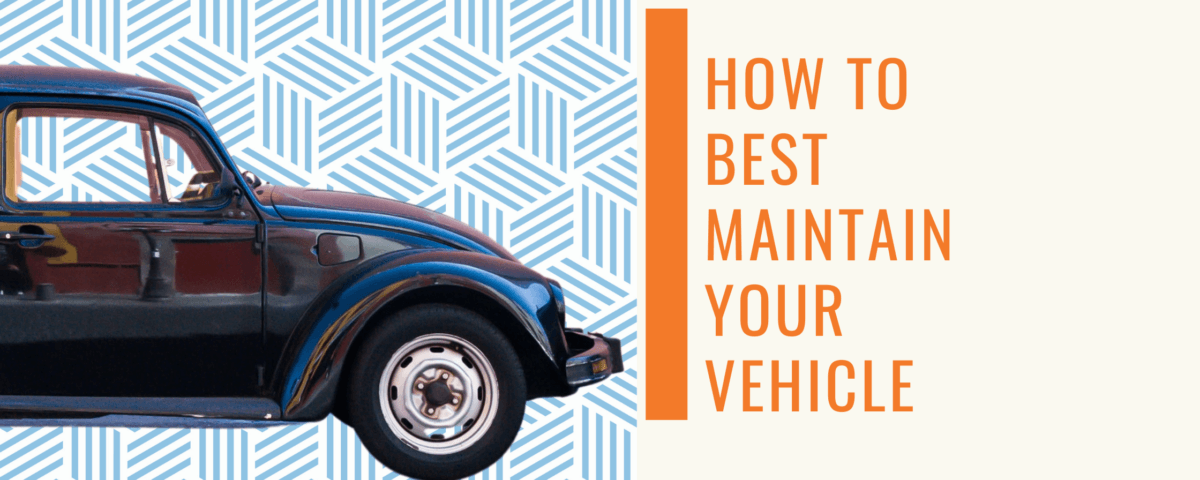- Exactly What You Need.
- (704) 558-7433
- (704) 960-1860
- hello@tillmaninsadv.com
How To Best Maintain Your Vehicle

How to Review Your Insurance Policies For The New Year
February 28, 2022
Can You Borrow Against Your Life Insurance Policy?
March 18, 2022The average age of vehicles on the road is about 8 years and 14 years at scrappage. At Tillman Insurance Advisors, we are interested in how to best maintain your vehicle to keep it on the roads for a longer period.
Your vehicle is a machine, and a machine requires regular maintenance to keep running. You can keep it on the road for close to 500,000 miles by properly maintaining your vehicle.
Your vehicle can be a pain in the neck without proper maintenance. Knowing how to best maintain your vehicle will help you avoid regular visits to mechanical workshops.
That being said, here are some ways to make sure breakdowns are reduced to a minimum with your vehicles;
1. Check Tire Pressure
The tires are a crucial component of any vehicle. A flat tire at the wrong time (if there is ever a right time) can delay your movement or leave you stranded in the middle of nowhere.
Knowing how to maintain your car’s tire pressure can help prolong the tire’s lifespan. Tire pressure tends to reduce over time as you continue to use them, so you must refill the air up to the recommended pressure.
It is also recommended to carry out a periodic inspection and maintenance of the tires.
If you have comprehensive car insurance, you can also buy tire protection add-ons so that whatever damage incurred by the tires would be covered.
2. Check and Change The Oil
1/3 of college students change their oil less than two times a year. These numbers are dangerously high for a task so important. The oil is essential to keep the engine running smoothly.
Develop a habit of routinely checking and changing your car’s oil. Check your oil level regularly and note how low the level has dropped. When it has dropped noticeably, change it as directed in the car’s owner’s manual or get a mechanic to help with the process.
Ensure you’re only using the manufacturer’s recommended oil for your vehicle.
3. Check Other Fluids
Besides the oil, other fluids are important for the proper running of your car. These are:
—Brake fluid
—Transmission fluid
—Power steering fluid
—Coolant
Monitor the fluid levels across the board. Top up or change the fluids as soon as they start falling below optimal levels. You should also check for leakages if any, and have them repaired.
4. Check Your Brakes
Good brakes can mean the difference between life and death. The brakes require brake fluid to function properly. Without enough brake fluid, they could stop working, which can result in some unsightly incidents.
You should always inspect your brakes and brake pads. While driving, try and listen for any noise coming from the brake pedal. You can tell the condition of the brakes from the noise it makes. If the noise is concerning, take the car to the service center as quickly as possible.
5. Don’t Ignore Warning Lights
Every car has several in-built warning systems to notify you when something is amiss. One of the first things you should do after buying your car is to go through the manual and understand what every one of those lights stands for.
For instance, a warning light may start to blink if a door is left open, or if the gas tank is near empty. These signs can help you identify problems early on, so you can remedy them before they get worse.
6. Go For Regular Checks
Some car maintenance tasks can be done on your own, but others require trained hands. Taking your car or vehicle to the technician once in a while for an all-round check will ensure your car stays up and running for many years to come.
A trained technician will notice things you don’t, and will also diagnose problems correctly and make required changes. A good car is a car that goes for routine checkups.
7. Wash your car
One last tip on how to best maintain your vehicle is regular washing and interior detailing. Every day you use your car, you subject it to all sorts of elements. The sun, dust, sand, road salt, bird droppings, acid rain and many other conditions. These elements chip away the quality of your vehicle. They damage the paint, wear out the tires, blur the mirrors or even rust the metal parts.
Keeping your car squeaky clean may help prevent long-term damage. Find the car washing method that best suits you and your vehicle.





